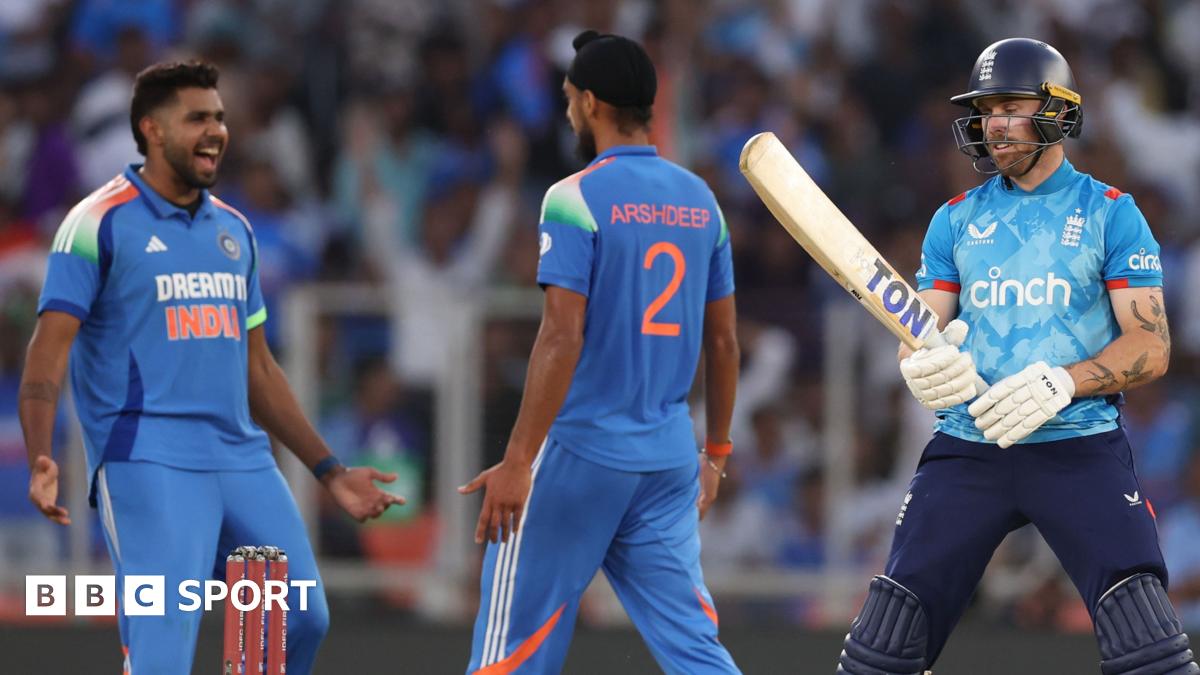 |
|
The recent India vs. England One Day International (ODI) series concluded with a decisive 3-0 victory for the hosts, leaving England with a comprehensive defeat and raising questions about their performance and team composition. The final match in Ahmedabad witnessed a humiliating 142-run loss for England, culminating a tour marked by consistent underperformance against a dominant Indian side. England's batting lineup crumbled under pressure, failing to chase down India's formidable total of 356. Several key players underwhelmed, contributing to a disappointing display of batting prowess that highlighted their vulnerabilities against a disciplined Indian bowling attack. This underwhelming performance underscores the need for a comprehensive review of England's strategies and player selection for future matches. The series defeat marks a significant setback for England’s white-ball ambitions, especially considering the upcoming Champions Trophy.
The individual performances within the final ODI match further highlighted England's struggles. While Tom Banton managed a respectable 38 runs after replacing the injured Jacob Bethell in the Champions Trophy squad, other key players like Phil Salt and Ben Duckett significantly underperformed. Duckett's performance was particularly hampered by an apparent groin injury sustained during the fielding innings. The severity of this injury remains uncertain but is of significant concern, as it could impact his participation in the upcoming Champions Trophy. This underscores the fragility of England’s squad depth and the reliance on key players to perform consistently. The injury concern surrounding Duckett further complicates England’s planning for the Champions Trophy, adding another layer of difficulty to their already challenging situation.
England's bowling attack also faced considerable challenges. The lack of all-rounder Jamie Overton, replaced by Banton, seemed to leave a void in England's attack, making it appear one-dimensional and potentially lacking the necessary firepower to contain India’s powerful batting lineup. While Adil Rashid delivered a commendable performance, claiming 4-64, his best ODI figures against India, and Mark Wood contributed with 3-45, these individual efforts were insufficient to compensate for the collective failures in England’s overall bowling strategy. The inability to restrict India's run flow contributed significantly to the sizeable margin of defeat, demonstrating the need for improved strategic planning and execution in future matches. The overall performance suggests a need for reassessment of bowling combinations and strategies to effectively address potent batting line-ups.
The 3-0 whitewash against India represents a significant setback for Brendon McCullum in his first series as England's white-ball coach. The comprehensive defeat in the ODI series, following a 4-1 loss in the T20 series, paints a concerning picture of England’s current form and raises questions about their preparation and strategic approach. The upcoming Champions Trophy presents an immediate opportunity for England to redeem themselves and demonstrate improvement in their overall game. However, the substantial challenges faced in the recent India tour suggest that significant changes in strategy, player selection, and overall team performance are necessary to improve their chances of success in future international competitions. Their opening match against Australia in Lahore holds significant importance as it will be a true test of their ability to recover from this series defeat and demonstrate improved performance.
Beyond the immediate tactical and strategic considerations, the series also highlights broader issues within the English cricket structure. From player selection and development to coaching strategies and overall team cohesion, a comprehensive review is crucial to identify and address the underlying problems that led to this comprehensive defeat. The investment in player development, coaching expertise, and strategic planning needs thorough evaluation to ensure that England is better prepared for future international challenges. The series against India serves as a harsh but necessary lesson, underlining the need for continuous improvement and adaptation in order for England to reclaim its position among the elite cricketing nations. The upcoming matches will serve as a crucial test of England's capacity for learning and adaptation in the face of adversity.
Source: India vs England: Hosts wrap up 3-0 ODI series win with 142-run thrashing in Ahmedabad
